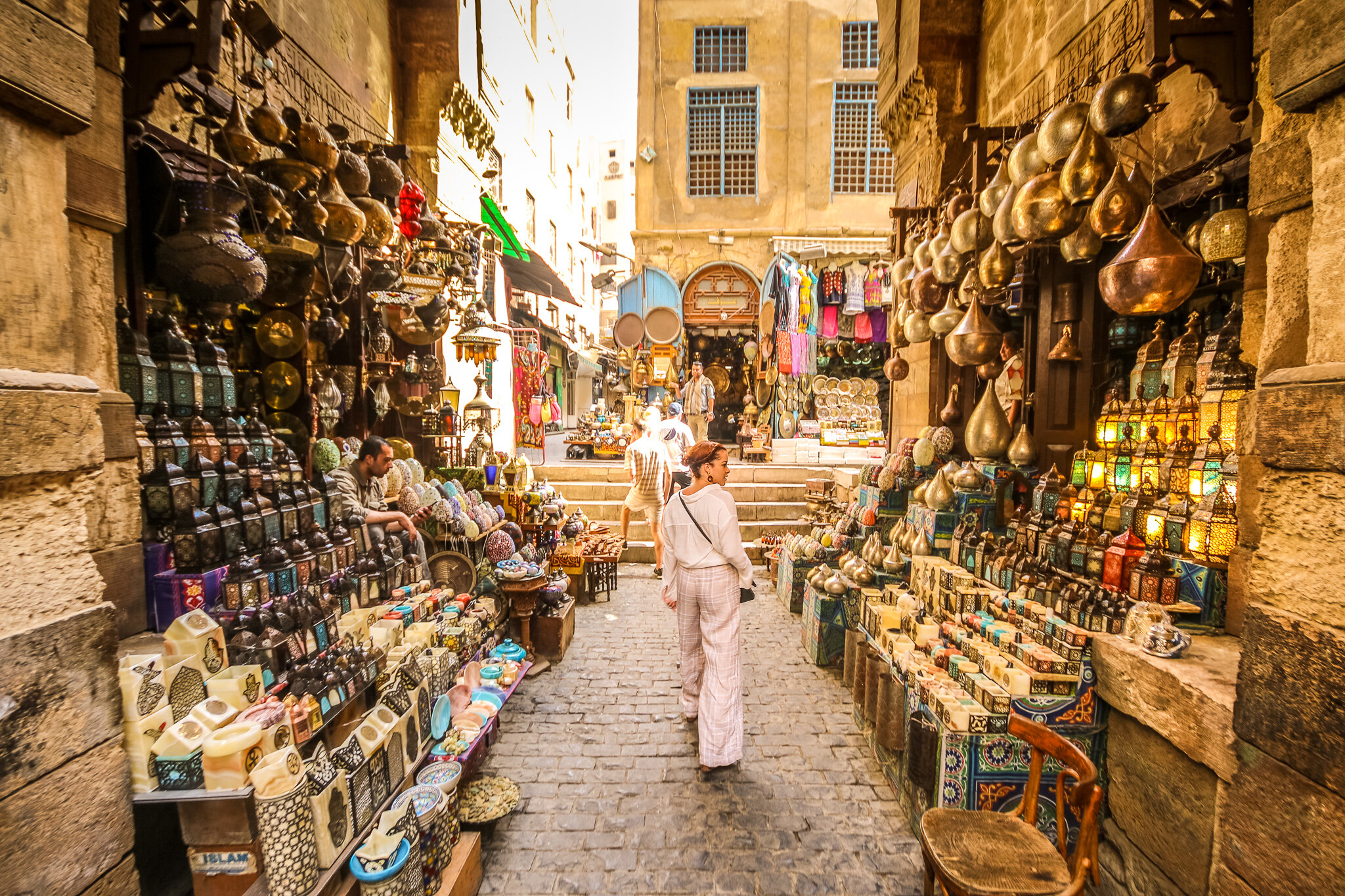
The Future of Tourism in Egypt: What to Expect in the Next Decade
Egypt, with its rich history, stunning landscapes, and cultural heritage, has long been a major player in the global tourism industry. From the ancient pyramids of Giza to the Red Sea resorts in Hurghada, Egypt has attracted millions of visitors each year. But as we look toward the future, what can we expect for the tourism industry in Egypt over the next decade? This blog will explore emerging trends, new developments, and the evolution of tourism in the country, with a special focus on companies like Alibaba Excursions Hurghada that are helping to shape this future.
The Evolution of Egyptian Tourism: A Snapshot of the Past
Tourism in Egypt has always been closely tied to its ancient history. The allure of the pyramids, the Sphinx, and the Valley of the Kings has brought countless tourists to Egypt for centuries. However, the past few decades have seen significant shifts in the tourism landscape. Political instability, global economic changes, and shifts in travelers’ interests have all played a role in transforming the sector.
Over the last few years, Egypt has rebounded from challenges and started investing in infrastructure, modernization, and diversification of its tourism offerings. The Egyptian government has recognized tourism as a critical pillar of its economy and has taken steps to make the country a more attractive destination for international visitors.
What to Expect in the Next Decade: Key Trends Shaping Egyptian Tourism
As we look ahead to the next ten years, several key trends are expected to shape the future of tourism in Egypt. These trends are likely to be influenced by global changes in travel habits, technological advancements, and the ongoing efforts of the Egyptian government to modernize its tourism infrastructure.
1. Growth in Sustainable and Eco-Tourism
Sustainability is no longer just a buzzword—it’s a necessity. As travelers become more environmentally conscious, Egypt is positioning itself to become a leading destination for eco-tourism. The Egyptian government, along with private companies, has begun to invest in sustainable tourism initiatives, which include promoting eco-friendly resorts, responsible wildlife tourism, and the preservation of natural habitats along the Red Sea coast.
One of the most promising areas for sustainable tourism is Egypt’s Red Sea resorts, particularly in cities like Hurghada. Hurghada has already become a hub for diving and marine life tourism, and there is growing interest in preserving its coral reefs and marine ecosystems. Local tour operators, like Alibaba Excursions Hurghada, are emphasizing eco-tourism by offering activities that focus on conservation and educating tourists on the importance of protecting the marine environment.
2. The Rise of Digital and Smart Tourism
The tourism industry is rapidly adapting to the digital age, and Egypt is no exception. Over the next decade, expect to see more seamless integration of technology in tourism experiences. From digital booking platforms and virtual reality tours to contactless payments and AI-powered customer service, technology will play a central role in shaping how tourists interact with Egypt.
Smart tourism is also being promoted in key cities like Cairo and Alexandria, where digital infrastructure is being enhanced to improve visitor experiences. In Hurghada, companies like Alibaba Excursions Hurghada are already leveraging mobile apps and online booking systems to make it easier for tourists to find and book their excursions, enhancing convenience and efficiency for travelers.
Virtual reality (VR) and augmented reality (AR) are also expected to revolutionize the way tourists explore Egypt’s ancient sites. Imagine touring the pyramids or the temples of Luxor using VR headsets, offering an immersive experience without physical limitations. These technologies will also help preserve delicate archaeological sites by offering virtual access to areas that are too fragile for mass tourism.
3. Increased Focus on Luxury and Wellness Tourism
Egypt has long been known for its budget-friendly package tours, but the next decade is likely to see a shift toward more luxury and wellness-focused travel experiences. With the growing trend of affluent travelers seeking personalized, high-end experiences, Egypt is poised to cater to this demand.
Luxury resorts along the Red Sea and Nile are already offering exclusive experiences, from private yacht charters to luxurious spa retreats. Hurghada, in particular, is a prime destination for upscale tourism, with its luxurious hotels and resorts, world-class diving spots, and beautiful beaches.
In addition to luxury, wellness tourism is becoming a key focus in Egypt’s tourism strategy. Visitors are increasingly seeking destinations that offer relaxation, rejuvenation, and holistic health experiences. Egypt’s rich cultural heritage and natural beauty, combined with modern spa treatments and wellness programs, make it an ideal destination for travelers seeking to improve their physical and mental well-being.
4. The Development of New Tourist Destinations
While the pyramids of Giza and the temples of Luxor will always remain Egypt’s most famous attractions, the next decade will see an expansion of new tourist destinations. The Egyptian government is investing heavily in infrastructure projects that will open up new regions for tourism.
One area of particular interest is the development of the North Coast. Stretching along the Mediterranean Sea, this region is poised to become a major tourist hub, with new resorts, hotels, and attractions under construction. The North Coast’s combination of beautiful beaches, mild climate, and proximity to Cairo make it an attractive option for both international tourists and Egyptians seeking a quick getaway.
Similarly, the southern part of Egypt, including the city of Aswan and the Nubian Desert, is likely to see more investment in tourism infrastructure. These areas, known for their stunning landscapes and rich cultural heritage, are gradually becoming more accessible to tourists.
5. Cultural and Heritage Tourism: Rediscovering Ancient Egypt
Despite the growing emphasis on modern tourism experiences, cultural and heritage tourism will remain a central pillar of Egypt’s tourism industry. In the next decade, expect to see more investment in the preservation and promotion of Egypt’s ancient sites.
The Grand Egyptian Museum (GEM), set to open in the near future near the Giza Pyramids, will undoubtedly be a key attraction. The GEM will house the world’s largest collection of ancient Egyptian artifacts, including treasures from the tomb of Tutankhamun. This new museum is expected to draw millions of visitors from around the world, offering an immersive experience into the history and legacy of ancient Egypt.
In addition to the GEM, Egypt is also focusing on promoting lesser-known sites, such as the temples of Abydos and the ruins of Tanis, which offer unique insights into Egypt’s ancient history. Tour operators like Alibaba Excursions Hurghada are already capitalizing on this trend by offering specialized tours to off-the-beaten-path destinations, helping to spread tourism beyond the traditional hotspots.
6. The Role of Local Tour Operators: Alibaba Excursions Hurghada
As the tourism industry in Egypt grows and diversifies, local tour operators will play a crucial role in providing authentic, unique, and personalized experiences for visitors. Companies like Alibaba Excursions Hurghada are at the forefront of this shift, offering tailor-made excursions that highlight the best of what Egypt has to offer, from the Red Sea’s coral reefs to the historical treasures of Luxor.
Alibaba Excursions Hurghada specializes in a wide range of activities, including snorkeling, diving, desert safaris, and cultural tours. The company’s commitment to providing high-quality service and promoting eco-friendly tourism is in line with Egypt’s broader goals of sustainable tourism development. As more tourists seek out local experiences that go beyond the typical sightseeing tours, companies like Alibaba Excursions will continue to thrive and help shape the future of tourism in Egypt.
Challenges and Opportunities Ahead
While the future of tourism in Egypt looks promising, it’s not without its challenges. Issues such as political instability, environmental sustainability, and the impact of global economic trends could all influence the trajectory of the industry. Additionally, competition from other regional destinations such as Dubai, Morocco, and Turkey will require Egypt to continually innovate and improve its offerings.
However, the opportunities for growth are immense. By focusing on sustainable tourism, embracing digital innovation, and investing in new destinations, Egypt has the potential to establish itself as one of the world’s top tourist destinations in the coming decade.
Conclusion: A Bright Future for Egyptian Tourism
The future of tourism in Egypt is filled with promise. As the industry adapts to changing global trends, the country’s rich history, stunning landscapes, and modern amenities will continue to attract travelers from all corners of the globe. From the development of new luxury resorts to the growth of eco-tourism in Hurghada and beyond, Egypt is poised for a bright and exciting future in the tourism sector.
Companies like Alibaba Excursions Hurghada are playing a key role in shaping this future by offering personalized, sustainable, and immersive travel experiences. As the next decade unfolds, Egypt’s tourism industry will continue to evolve, providing travelers with even more ways to discover the magic of this ancient land. Whether you’re looking for an adventure in the desert, a luxurious beach vacation, or a deep dive into Egypt’s ancient history, the future of tourism in Egypt promises to be an exciting journey.





